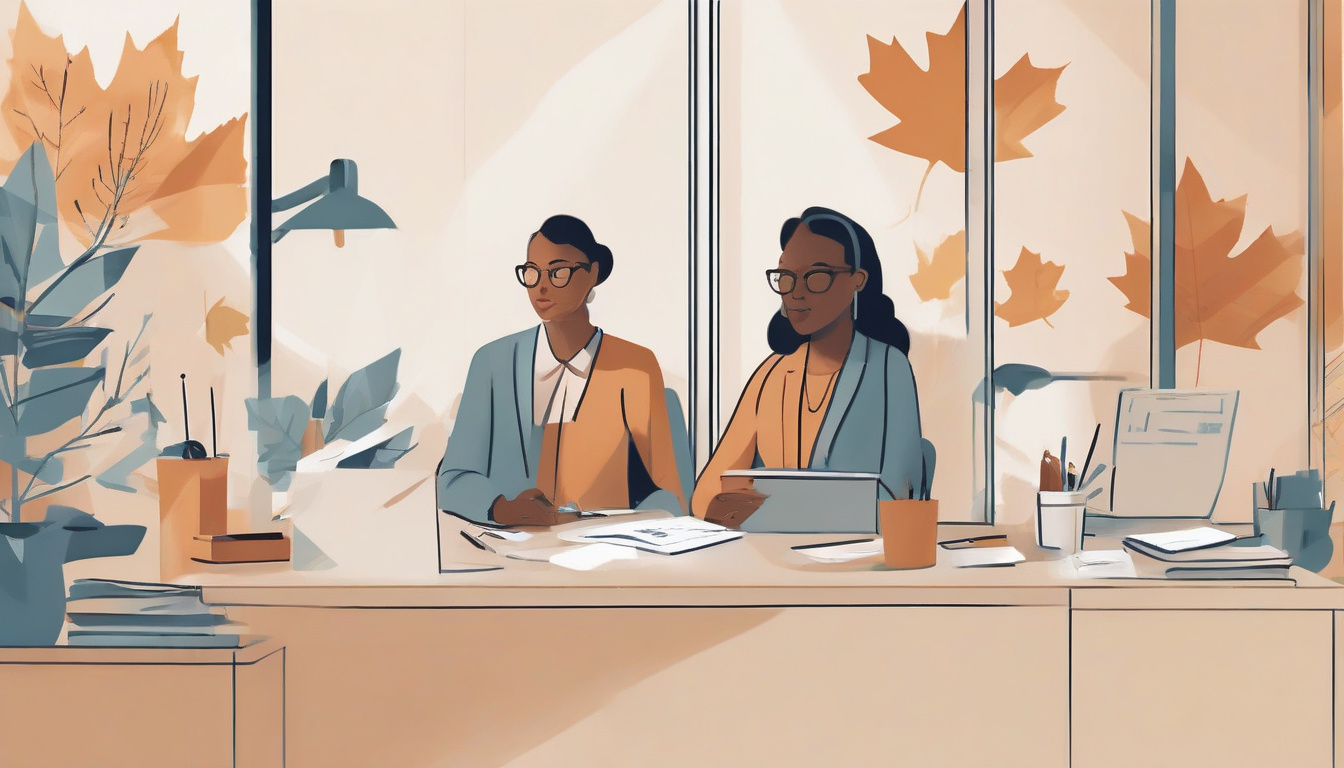Unlock Financial Freedom: Discover the Best Free Debt Help Resources Today

Tyler McAllister
Senior Finance Writer
In today’s complex financial landscape, achieving financial freedom often starts with understanding and managing debt effectively. If you’re searching for free debt help, you’re likely feeling overwhelmed by financial obligations and uncertain about where to turn. Fortunately, many resources are available that offer valuable support without costing you a dime. In this article, we will explore various free debt help options, including online resources, non-profit credit counseling services, government programs, and practical strategies for building a debt-free future. By utilizing these resources, you can take important steps toward regaining control over your finances and ultimately achieving the financial freedom you desire.
 and unsecured debt (like credit card debt). Understanding these distinctions is essential because they often dictate your repayment strategies and your overall financial health. </p>
<p>Moreover, recognizing the difference between good and bad debt can also be transformative. Good debt, often seen as leveraging, can help you invest in assets that appreciate over time, whereas bad debt usually results from spending beyond your means and can trap you in a cycle of payments. </p>
<p>One of the first steps individuals can take is to review their financial situation comprehensively. This involves listing all debts, understanding interest rates, and assessing monthly payments. Armed with this information, you can explore free debt help options.</p>
<p>From non-profit credit counseling to government-funded assistance programs, there are numerous resources available to guide you. Educating yourself is your first line of defense against overwhelming debt. Understanding the terms of your debts, your rights as a borrower, and what options are out there can empower you to make informed decisions. By engaging with these resources, you position yourself on a path toward financial freedom and stability.</p>
<h3>Exploring Free Debt Help Resources Available Online</h3>
<p>In an increasingly digital world, finding resources for financial assistance has become much more accessible, particularly when it comes to free debt help. Various online platforms offer valuable services to individuals seeking to manage overwhelming debts. Options such as nonprofit credit counseling agencies provide free consultations and can help create personalized repayment plans. Additionally, websites like the National Foundation for Credit Counseling (NFCC) and the Financial Counseling Association of America (FCAA) list accredited organizations that can offer free guidance while ensuring protection from predatory loans. Moreover, informative blogs, webinars, and video tutorials found on government and nonprofit websites help demystify topics such as managing credit, understanding interest rates, and negotiating with creditors. For those interested in a community approach, forums and social media groups can provide emotional support alongside practical advice. Leveraging these free debt help resources can empower individuals to regain control over their financial situations without incurring further costs.</p>
<blockquote><p>‘The best way to predict your future is to create it.’ – Peter Drucker</p></blockquote>
<p><a href=)

How Non-Profit Credit Counseling Can Assist You
Non-profit credit counseling services play a crucial role in providing free debt help to individuals striving to regain control of their financial situations. These organizations are designed to assist clients in addressing their debts and improving their overall financial literacy. One of the primary methods through which non-profit credit counselors help is by offering personalized assessments of an individual’s financial status. Through a detailed review of income, expenses, and debts, counselors can help clients identify their unique financial challenges and craft a tailored plan for debt management.
Furthermore, non-profit credit counseling often provides educational resources that empower clients with knowledge about budgeting, saving, and banking effectively. This not only helps them navigate their current debt situation but also equips them with the tools to avoid similar issues in the future.
In addition to education, many non-profit counseling agencies offer Debt Management Plans (DMPs), where counselors negotiate with creditors on behalf of the client, often leading to lower interest rates or reduced payments. These negotiations also provide a structured repayment plan that simplifies the debt payoff process, taking the burden off of the individual. Ultimately, non-profit credit counseling can be an invaluable resource for anyone looking for free debt help, facilitating a clearer path towards financial freedom and stability.
Government Programs Offering Free Debt Relief Services
## Government Programs Offering Free Debt Relief Services
When it comes to managing financial burdens, many individuals and families find themselves searching for free debt help options. Fortunately, various government programs exist to provide assistance and relief from overwhelming debt.
###
1. Federal Trade Commission (FTC) Resources
The FTC plays a crucial role in educating consumers about their rights and the resources available to them. They offer comprehensive guides and tools to help identify legitimate credit counseling services. These services often operate on a non-profit basis and can help negotiate better terms with creditors.
###
2. The U.S. Department of Education
For those with federal student loans, the U.S. Department of Education provides options which can significantly reduce or eliminate debt. Programs such as Income-Driven Repayment Plans (IDR) and Public Service Loan Forgiveness (PSLF) directly target borrowers by adjusting payments based on income and offering forgiveness after a certain number of qualifying years in public service jobs.
###
3. State-Sponsored Debt Relief Programs
Many states have specific programs designed to assist residents with financial difficulties. These often include free credit counseling and other resources to help individuals manage their debt. They may offer access to financial education workshops and assistance in negotiating payment plans with local creditors.
###
4. Non-Profit Credit Counseling Agencies
While technically not governmental, many non-profit organizations receive government funding to provide free debt relief services. Agencies accredited by the National Foundation for Credit Counseling (NFCC) typically offer no-cost consultations, budget planning, and help with debt management plans.
###
5. Legal Aid Services
For individuals facing debt collection and potential lawsuits, many legal aid offices provide free or low-cost legal services to help navigate these challenges. They can assist with understanding consumer rights and even represent debtors in court, which can be critical for reclaiming financial stability.
###
6. Bankruptcy Services Through Government
While bankruptcy is often viewed as a last resort, government resources provide necessary guidance on filing for bankruptcy. This can be an effective means for individuals overwhelmed by debt to reset their financial situation. Approved credit counselors can help individuals assess their situation and determine if bankruptcy is the best route.
###
7. Pandemic-Related Debt Relief Initiatives
In response to the COVID-19 crisis, several temporary federal initiatives were rolled out, including deferments or suspensions on federal student loan payments and mortgage relief options. These programs aim to help individuals stabilize their finances during tough economic times and are particularly crucial for those still recovering from job loss or reduced income.
### Conclusion
Government programs offering free debt help are essential resources for individuals struggling to keep up with their debts. By taking advantage of these services, borrowers can find a clearer path to financial stability without the burden of high fees that private companies often impose.

Building a Debt-Free Future: Strategies Beyond Immediate Help
When it comes to managing debt, finding free debt help can be a pivotal first step. Yet, while immediate assistance is invaluable, paving a path towards a long-term, debt-free future requires more than just momentary fixes. To truly overcome financial burdens, it’s essential to adopt proactive strategies that empower you to regain control over your finances and ensure that you do not fall back into the cycle of debt.
Here are some strategies that can build a debt-free future:
1. Create a Comprehensive Budget: Start by assessing your income and expenses. Knowing where every dollar goes can identify areas to cut back on. Allocate funds for essentials, savings, and debt repayment. Use tools like budgeting apps or spreadsheets that can track your finances systematically.
2. Emergency Fund: Establishing a small emergency fund can prevent the need to rely on credit cards in times of unexpected expenses. Aim for at least $500-$1,000, which can help stabilize your financial situation without going further into debt.
3. Increase Your Financial Literacy: Understand the ins and outs of managing debt. Many organizations offer free workshops and resources on financial literacy, which can provide you with the knowledge to make better financial decisions.
4. Negotiate Your Bills: Contact service providers to negotiate lower bills. This could apply to utilities, insurance, or even medical bills. Many companies are willing to offer discounts if you ask, which can give you extra funds to apply towards debt.
5. Find Additional Income Streams: Consider avenues for increasing your income, such as freelance work, part-time jobs, or monetizing hobbies. Directing extra earnings towards your debt can substantially shorten the repayment timeline.
6. Engage with Accountability Partners: Share your goals with friends or family who can offer encouragement and keep you on track. Having someone to share the journey with can make the process more manageable and less isolating.
Committing to these strategies enhances your financial literacy and decision-making capacity, ensuring you create a sustainable framework for a debt-free future that isn’t solely dependent on immediate relief tactics.
Frequently Asked Questions
What are some effective free debt help resources available online?
There are numerous online resources available for free debt help, including nonprofit credit counseling organizations, government websites that offer financial literacy materials, and various financial management tools and calculators.
How can nonprofit credit counseling assist me in managing my debt?
Nonprofit credit counseling agencies provide personalized budgeting advice, educational workshops, and may offer debt management plans to help consolidate payments and reduce interest rates.
Are there any government programs that offer free debt relief services?
Yes, government programs often provide resources like financial education, options for loan repayment plans, and sometimes even grants based on eligibility for those struggling with debt.
What should I do if I don’t qualify for free debt help programs?
If you don’t qualify for free debt help programs, consider exploring low-cost financial assistance options, establishing a budget to manage debt more effectively, or seeking guidance from a financial advisor.
What strategies can I implement today to start building a debt-free future?
To build a debt-free future, focus on creating a detailed budget, prioritizing debt payments using the avalanche or snowball method, limiting new debt, and building an emergency fund to avoid future borrowing.
